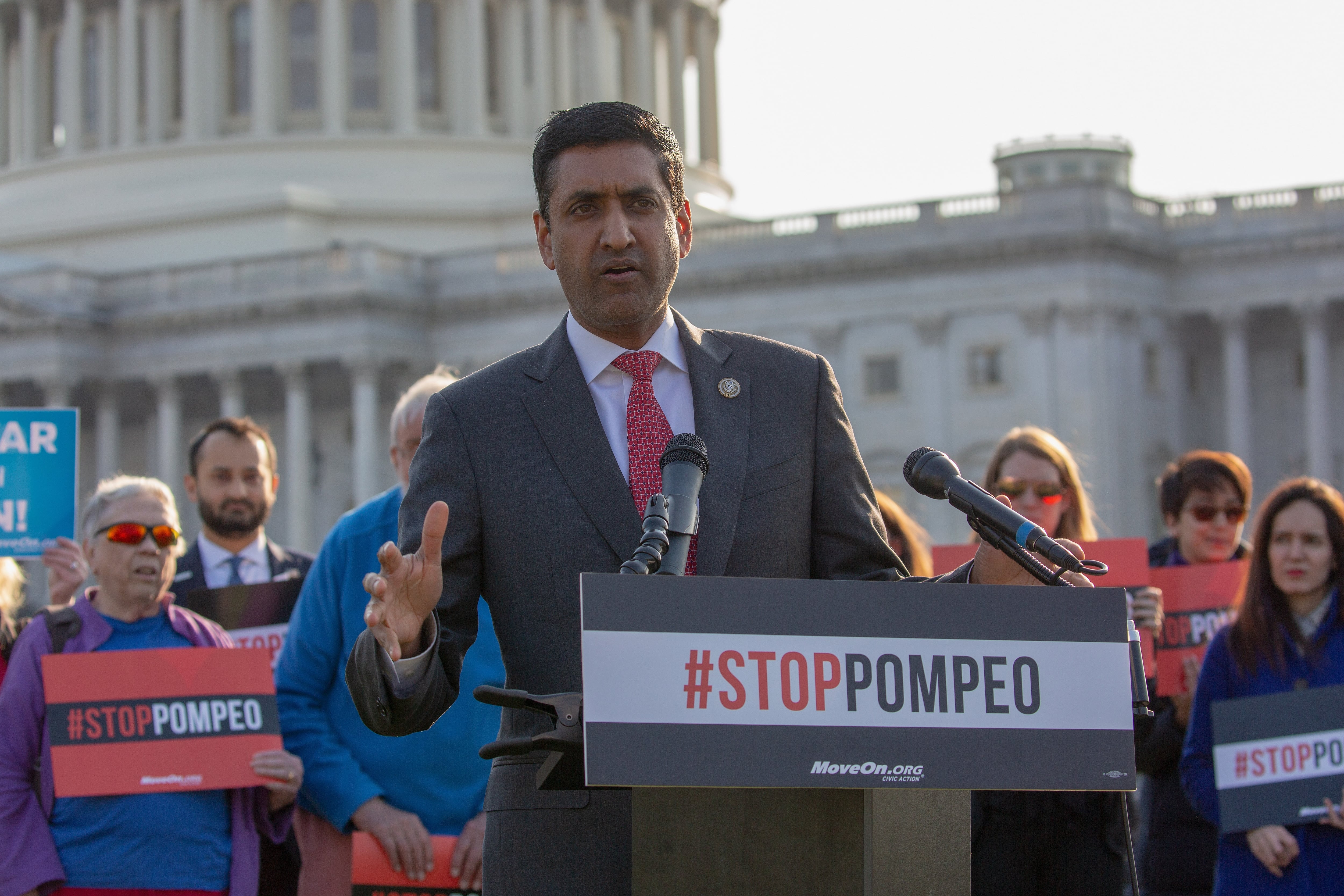WASHINGTON ― In a strong bipartisan vote, the House passed a compromise defense policy bill that authorizes a new Space Force and $738 billion for the Pentagon. However, a small but vocal group of Democrats voted against it because of the absence of new war powers restrictions, arms control language and border wall mandates. The vote was 377-48.
Beyond the 3,488-page bill’s role in authorizing the defense budget, lead House Democrats highlighted a number of reasons for their caucus to vote for the 2020 National Defense Authorization Act. Paid parental leave for federal workers was at the top, with a new process to redress military medical malpractice cases, improvements to scandal-plagued military housing, the elimination of the military “widows tax” and prohibitions on the military’s use of “PFAS” chemicals.
But a number of Democrats still broke ranks on the final draft, which excluded a broader PFAS ban, restrictions on the president’s ability to transfer military money to his southern border wall project, a cut to the W76-2 low-yield nuclear warhead and prohibitions on U.S. military support for the Saudi-led intervention in Yemen.
Of Democrats, 188 voted “yea” and 41 voted “nay.” Of Republicans, 189 voted “yea” and six voted “nay.”
An NDAA has been finalized by Congress for 58 consecutive years, but this year’s bipartisan, bicameral negotiations were unusually complex because of split control of Congress. When House Republicans en masse opposed their chamber’s bill months ago, Democrats added progressive policy measures so it would muster the votes to pass the House, but those provisions were stripped out in talks with the GOP-controlled Senate.
The split Democratic vote highlights the crosscurrents House Armed Services Committee Chairman Adam Smith, D-Wash., must navigate ― in addition to GOP pressure ― as he steers future NDAAs. On Wednesday, Smith issued a fiery and defensive statement aimed at members of his own party, saying: “This is the most progressive defense bill we have passed in decades.”
He also argued it reflected a bipartisan consensus on national security: “Ultimately, the biggest difference between where the Democrats in the House were at and the Republicans in the Senate were at, we believe in more aggressive legislative oversight, particularly when it comes to matters of engaging in military action. We remain deeply concerned about the war in Yemen. It is not our war.”
During the debate, Rep. Ro Khanna, D-Calif., said calling the bill progressive was “Orweillian,” and he exhorted his colleagues to vote “nay” over the absence of language he sponsored “to stop the war in Yemen.”
That prompted Smith to say that it was “breathtakingly dishonest" to suggest the NDAA contained language that would end Yemen’s civil war.

House Republicans joined House Democratic leaders in voicing enthusiastic support for the bill.
“You had two very different bills and a panoply of issues that were not in our jurisdiction. And somehow all of that had to come together in a way that would pass the House, pass the Senate and hopefully be signed into law by the president,” HASC ranking member Rep. Mac Thornberry, R-Texas, said Tuesday.
“It has been incredibly challenging, but enormous credit goes to Chairman Smith for his patience and his persistence in working through with members here, the other body and the executive branch.”
President Donald Trump ― who successfully pushed for the creation of Space Force in the bill ― announced Wednesday in a celebratory tweet he would sign the bill.
“Wow! All of our priorities have made it into the final NDAA: Pay Raise for our Troops, Rebuilding our Military, Paid Parental Leave, Border Security, and Space Force!” Trump’s tweet read. “Congress ― don’t delay this anymore! I will sign this historic defense legislation immediately!”
The Senate plans to take up and pass the bill next week, where an even larger proportion of Democrats are expected to support it. However, two Democratic presidential contenders, Sens. Bernie Sanders and Elizabeth Warren, announced they will vote against the bill in part because it rejected the Yemen provisions. Warren, in a tweet, called the bill a “$738 billion Christmas present to giant defense contractors.”
While Co-Chair Pramila Jayapal, D-Wash., said she would not vote for the bill, her 90-member Congressional Progressive Caucus did not whip votes against it.
On the flip side, New Jersey Democrat Rep. Tom Malinowski, a former State Department official who narrowly won a Republican district in 2018, said Tuesday he was always going to vote “yes” ― even after negotiators rejected his amendment to ban the sale of air-to-ground munitions to Saudi Arabia and the United Arab Emirates.
“No. 1, I’m a pro-defense Democrat, and I want to support our forces,” Malinowski said, adding that the paid parental leave provision offset some of his displeasure.
The bill falls short of the $750 billion that Trump and Republicans said earlier in the year the Pentagon needs to implement the National Defense Strategy. However, it hews to the top line that congressional leaders and the White House agreed to in July, and it represents a $22 billion increase over 2019.
Among other pieces of military hardware, the NDAA would authorize 12 more Lockheed Martin F-35 fighter jets for the U.S. military than the administration requested, for a total of $1 billion, as well as eight new Boeing F-15EX fighters, three Arleigh Burke-class destroyers, a new frigate, two more amphibious warships and three unmanned surface vessels.
Joe Gould was the senior Pentagon reporter for Defense News, covering the intersection of national security policy, politics and the defense industry. He had previously served as Congress reporter.








